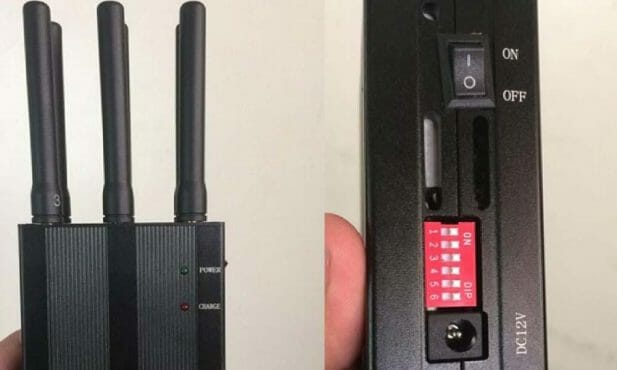Quick Navigation
Jamming is a technique used to prevent electronics from communicating within wireless security systems. Jamming devices are known as interference generators or signal suppressors, however, they are often referred to as jammers.
Interference generators function at the frequency of the device whose operation is to be disrupted within a certain radius. If the frequencies of the gadget and the jammer do not match, the jamming has no effect on the device’s operation. Jamming can be directed at both individual detectors and the entire security system.
An idea behind wireless jamming is that a device transmits data via a specific frequency when it is wireless. The first frequency must be disrupted or jammed by sending out a stronger signal than the first to block it so that it cannot be received. To jam the first signal properly, the second signal must be frequency-locked to its frequency.
It is important for the person who jams Wireless Security Cameras to know the frequency that the camera is broadcasting on so that he can jam it properly. However, he must also have the proper equipment to do so.
Is it Illegal to Use a Jammer to Enforce the Law?

According to federal law, any equipment that interferes with authorized radio communication, including cellular or personal communication services (PCS), police radar, or global positioning systems (GPS), is prohibited from usage, marketing, or sale. It is also illegal to advertise, sell, distribute, or market these security camera jammer devices to consumers. These devices pose significant threats to crucial public safety. (1)
Jamming is Prohibited
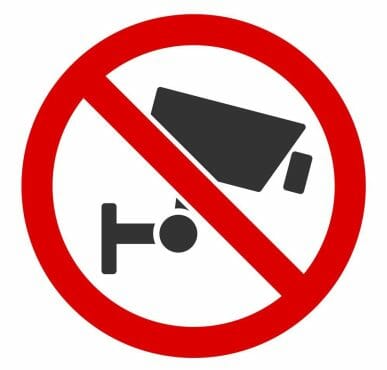
The use of jamming equipment by local law enforcement is not permitted on an independent basis. However, the use of jamming equipment by federal law enforcement is permitted under certain limited circumstances.
Although it is prohibited for private persons to use jamming equipment in most countries, certain governments allow corporations and government entities to install jammers in locations where CCTV or cell phones are declared a public nuisance.
In addition to preventing you and others from making 911 or other emergency calls, signal jammers can interfere with your everyday communications and threaten public safety. (2)
Disabling or Jamming?
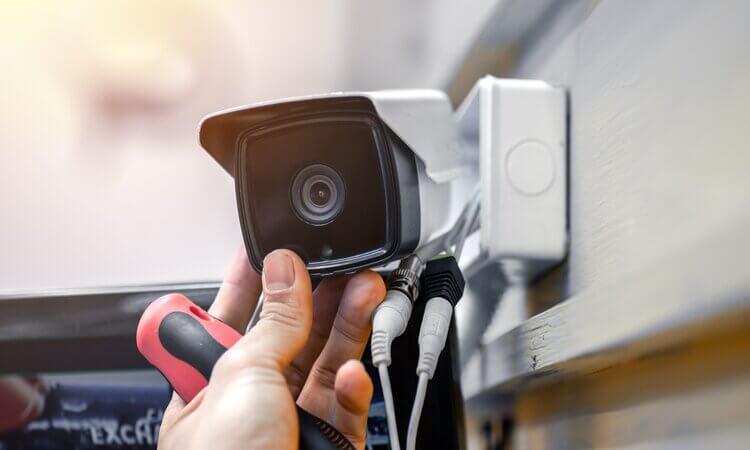
Stopping or disabling a CCTV camera is not the same as jamming or pausing the video. To deactivate a camera, you may need to cut the cables, damage the lens, or disconnect the power source. Jamming does not ruin or damage your camera; it only stops signals via frequency waves, preventing the camera from functioning. The distinction between the act of disabling a security camera and the act of jamming it is crucial.
Disabling
The process to disable a camera is fairly easy. The security cameras can be hooked up in various ways. Many of these cameras are hardwired to an advanced security system, which may sound an alarm if the camera is deactivated illegally. Many other security cameras do not offer that kind of support. It is quite simple to turn these ones off.
You can also disable a camera the old-fashioned way – and even a crook who has little experience in it can do it. Cameras work only if power is provided. Disabling the power means turning the camera off. A few minutes of close inspection may be required to determine whether it operates with batteries or power cords. When you have determined which it uses, then it can be turned off for good.
Jamming
In this technique, the camera detects wireless signals transmitting at a specific frequency. A more powerful signal transmitted at the same frequency is then used to overpower the set frequency. How would someone be able to overpower your device’s frequency, you might wonder? In order to identify their frequencies, many security devices, like surveillance cameras, need to identify their frequencies. To jam your cameras, you simply have to research. For your own safety, you can also create your own jammer, which we will discuss below.
Jamming Implications on Security Cameras and Pausing Them Temporarily
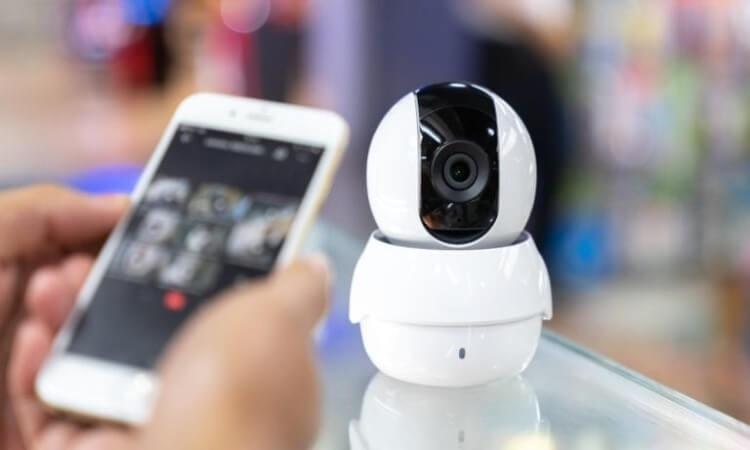
You might lose the camera’s functionality if you disable it. CCTV cameras, however, can be paused whenever you’d like.
Only the frequency waves are blocked, which prevents the camera from working. In most cases, it is not possible to jam cameras that are connected to recorders. However, cameras that are wireless may be jammed as we store recorded footage in the cloud. Therefore, you won’t hear any sounds when someone enters your home since the signal is blocked. Having a camera that is wired can result in the footage being lost if it is disconnected. Wireless cameras, on the other hand, may continue to record if they have batteries. In other words, the burglar will have to disable them to escape being recorded if they are jammed.
So far, we have concluded that pausing a camera and disabling one are very different operations. While a camera is paused, it will not be recording for a certain period of time. When it is manually turned back on, it will begin recording again. The process can be done via your web browser or an app. You can even schedule certain recording times with some brands. It is likely that a couple of hours were lost from the footage due to the camera being paused and not disabled.
Designing a Jammer Is it Really Worth It? How Would You Go About Doing It?
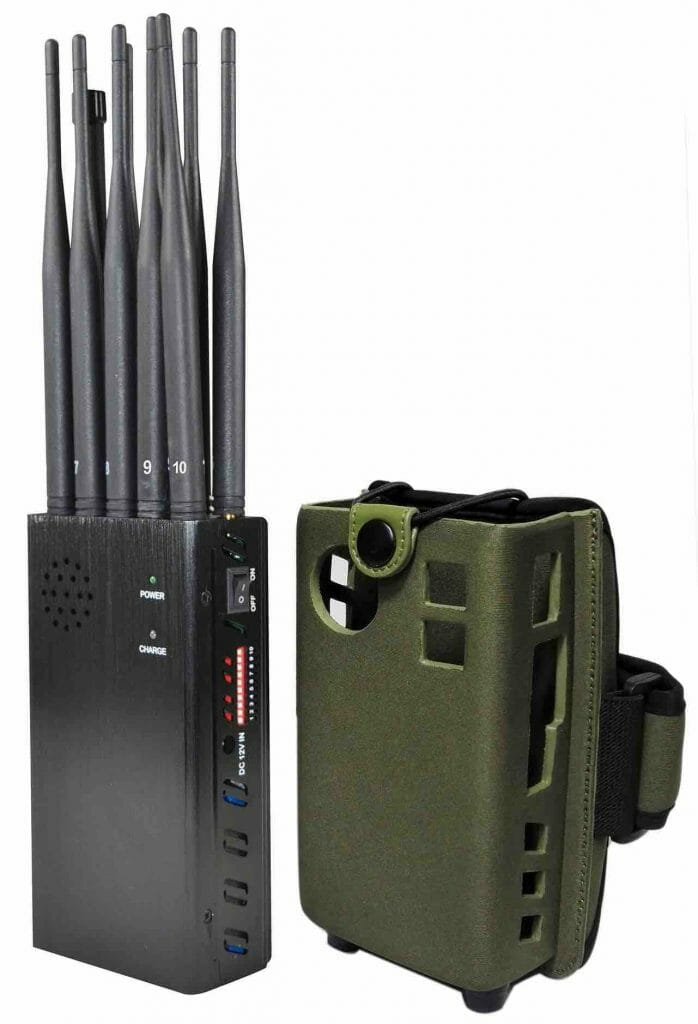
Jamming cameras requires a device that emits a specific frequency. On top of that, these devices are extremely expensive and are often hard to obtain.
In terms of actually designing a jammer, it would be extremely challenging since you would need the correct amount of technology to do so. Getting it done is not impossible, but it will cost a lot of money and won’t be accomplished in a weekend. Because burglars won’t bother with that one, you can relax as the odds of your cameras being jammed are slim. Having your house targeted by a burglar is even less likely if your house has the resources to create a jammer.
It’s all about your Camera
It does not mean a thief cannot access a device just because they cannot design a jammer. You can, however, take action to defend your home from burglars in many ways. Installing other security alarms besides cameras may ensure that your home is even more secure. Make sure your cameras are placed in less obvious locations. They are therefore less likely to be damaged or vandalized. Knowing which type of camera you want to buy is another way of keeping safe.
Let’s talk about the type of camera you should consider being jammed.
Wireless Cameras
Electricity to power the camera can be obtained from an outlet when it is a wireless camera. Alternatively, you can use rechargeable and replaceable batteries. Despite the cable being cut, the camera will continue recording even after it has been disconnected. So it will continue uploading to the cloud.
When the camera is removed from its outlet, the battery can be charged. However, some cameras operate on outlets with a backup battery. This lets the police catch, burglars. Further, some cameras can alert you via an app, while others have the capability to alert authorities immediately. In order to keep the alarm from going off while they are cleaning out your house, thieves jam your wireless security system with these features.
FAQs
Is it Possible to Jam Security Cameras?
When a strong signal overpowers the wireless signal of any security camera on the same frequency, the camera’s signal can be jammed. Tampering with the wires or connected equipment can cause the wires of a Wired Security Camera to be jammed. Jamming a security camera, however, is far more complex than just disrupting its signal.
What Does “Jamming” a Security Camera Mean?
If interference occurs that prevents security systems from functioning normally, it is described as jamming. Those networks that rely on wireless or radio communication can be affected by such a breach. In the event that a security device’s communication is disrupted, jamming will result. Well, what is most important here is, jamming is an extremely illegal activity.
Why Would Someone Attempt to Jam a Security System?
A person who attempts and succeeds in jamming security cameras is typically involved in some sort of criminal activity. The rationale for doing so is rare. And, of course, tampering with signals is illegal. Despite the fact that this jamming is carried out for a legal reason, interfering with it is not legal.
What Other Kind of Communications Can be Jammed?
For jamming security systems, one must know how security equipment works and the frequencies involved. Other forms of communication are also affected by jamming, such as:
- A block on your cell phone’s communications, such as texts, calls, and emails.
- Wi-fi devices are prevented from accessing the internet and connecting.
- You won’t be able to locate yourself when enabled on your mobile device.
- Block GPS signals.
How Do Jammers Function?
The use of jammers will prevent any devices within a certain range from connecting and communicating. It can prevent any incoming or outgoing communications from any device that uses the same frequency. Jammers are capable of interfering with the signals of cellular and Wi-Fi-based home security systems. Your cameras and sensors will not be damaged, but their capacity to transmit a signal will be reduced.
Is it Possible to Jam a Jammer?
While it is difficult for a human to block a jammer, you can detect its use on your signal. Locate the transmitter and turn it off there. Perhaps an experienced hacker could jam the jammer. They can create a jammer to jam another. The key to jamming a signal is identifying the frequency, how it is modulated and how much power is being radiated or transmitted. The unwanted signal can either be drowned or overwhelmed, canceled, messed up as long as its characteristics are known. However, that would also involve illegally blocking a signal, in which case one would also be liable for the initial jamming.
Concluding Thoughts
Well, designing a jammer is not an easy task. However, no security camera can be completely protected from jamming. One way to defend ourselves is to comply with laws prohibiting these devices. In addition, it is vital that we watch out for each other and report anyone who might be illegally interfering with signals.
References
(1) GPS – https://www.britannica.com/technology/GPS
(2) 911 – https://www.sciencedirect.com/science/article/pii/0735675784900706

